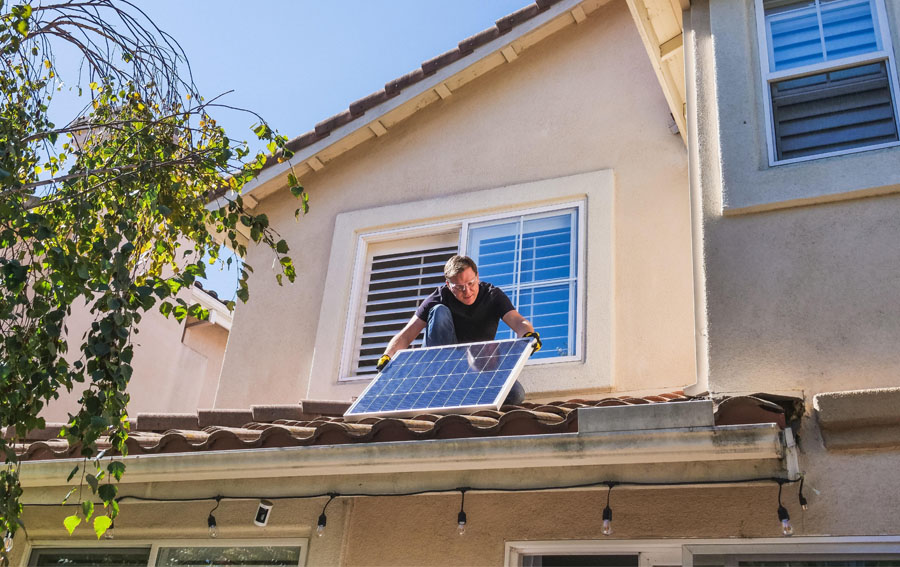Don’t get left in the dark
Loadshedding has sadly become a fact of life for all South Africans, and we’re having to get used to bored kids, cold meals and – if you work from home – missed deadlines. While you may have to wait patiently for the issues with the national grid to get resolved, you don’t have to be left feeling powerless.
At bidorbuy, we have a range of solutions to supply power to your home during planned outages and power cuts caused by faults. You can scale these solutions to meet your needs, from a simple set-up that will let you keep streaming, charge your phone and have a light or two on, to more advanced systems that can power many more of your devices, for longer.
Inverters to the rescue
Inverters have become a must-have item for many South Africans. They come in a range of sizes, so you can choose the one that best meets your needs and your budget. In simple terms, an inverter converts electricity from AC (mains power) to DC (for storage in batteries) and back again.
While you have mains power, the inverter uses it to recharge the batteries. When loadshedding strikes, the flow is automatically reversed, and the inverter takes stored energy from the batteries and converts it to AC power that your devices can use.
Of course, the more devices you connect to your inverter, the less time the batteries will last. But as soon as power is restored, the inverter will start recharging them. Even a basic inverter can provide you with hours of power for low-energy-usage devices like phone chargers, routers, LED lamps and laptops. However, unless you invest in a really big inverter, you still won’t be able to use devices with heating elements (like kettles, toasters and hairdryers).
Wave goodbye to the darkness
One thing to look out for is whether your inverter provides ‘pure sine wave’ electricity or ‘modified sine wave’ electricity. Pure sine wave energy is better for high tech devices – modified sine wave energy can cause screens to flicker.
It’s also worth checking which batteries are built into your inverter: lithium (li-on) batteries may be more expensive, but tend to perform better and last for longer.
Shop our range of inverters here.
Generate your own power
Of course, inverters still need mains power to charge their batteries. If you want even more independence, consider getting a petrol generator. These devices don’t need any mains power at all – they run on petrol, which you can get from any garage.
Like inverters, generators are available in a range of sizes from very large, fixed units to smaller, more portable machines.
Before you buy a generator, there are a few factors you’ll need to consider. As well as making electricity, generators create noise and fumes, so they need to be carefully positioned to avoid upsetting your neighbours. You’ll also need to ensure a regular supply of petrol, and have somewhere safe to keep this. Remember to bear in mind the cost of fuel when you’re working out whether a generator is right for you.
Check out the best deals on petrol generators here.
Here comes the sun!
In South Africa, we’re blessed with hundreds of hours of sunlight every year – a wonderful, carbon-free source of clean energy that you can tap into by placing solar panels on your roof. Best of all, once you’ve bought the equipment, the energy itself is completely free!
The area of panels you have will determine how much solar energy you can generate, and it can be used in conjunction with an inverter and batteries (with the sun providing the charge) or used to provide power for specific things like outside lights.
We also stock a range of individual solar-powered devices such as motion-sensor security lights and use-anywhere power banks (ideal for camping as well as during loadshedding).
Catch some rays here.
With so many options, you can definitely make loadshedding easier to bear when you shop your way on bidorbuy.









